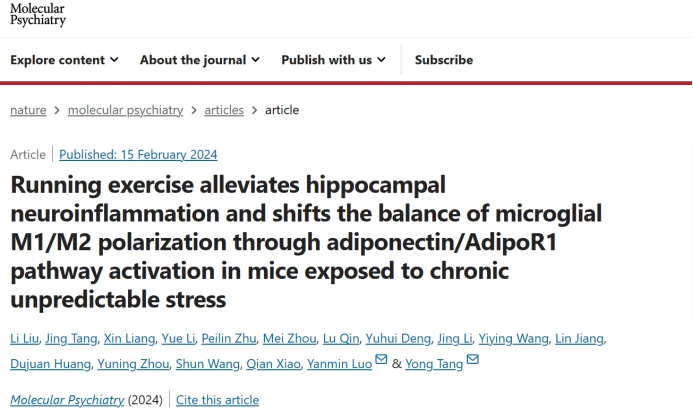On February 15th, 2024, Professor TANG Yong's team from the College of Basic Medicine at Chongqing Medical University (CQMU) published a research article online in Molecular Psychiatry, which is a prestigious international journal on mental disorders. The article, titled "Running exercise alleviates hippocampal neuroinflammation and shifts the balance of microglial M1/M2 polarization through adiponectin/AdipoR1 pathway activation in mice exposed to chronic unpredictable stress," sheds light on a new mechanism by which running exerts antidepressant effects through the reduction of neuroinflammation.

Depression is a serious neuropsychiatric disorder. Running can effectively alleviate symptoms of depression, however the underlying mechanism still requires clarification. Microglia, innate immune cells in the central nervous system, play a crucial role in the pathogenesis of depression through an imbalance in M1/M2 polarization and the resulting dysregulation of neuroinflammation. The study revealed that running significantly decreased the quantity of microglia and enhanced their morphology in the hippocampus, as well as rebalanced M1/M2 polarization, which in turn alleviated depression-like behaviors in mice subjected to chronic unpredictable stress (CUS). The findings indicate that running exercise may modulate the balance between M1/M2 polarization and suppress neuroinflammation in the hippocampus of CUS mice, potentially through the activation of the adiponectin/AdipoR1 signaling pathway.

This research investigated the antidepressant effects of running by examining the connection between the peripheral and central nervous systems, offering a significant scientific foundation for identifying novel targets and approaches for preventing and treating depression.
Link to full article:
https://www.nature.com/articles/s41380-024-02464-1